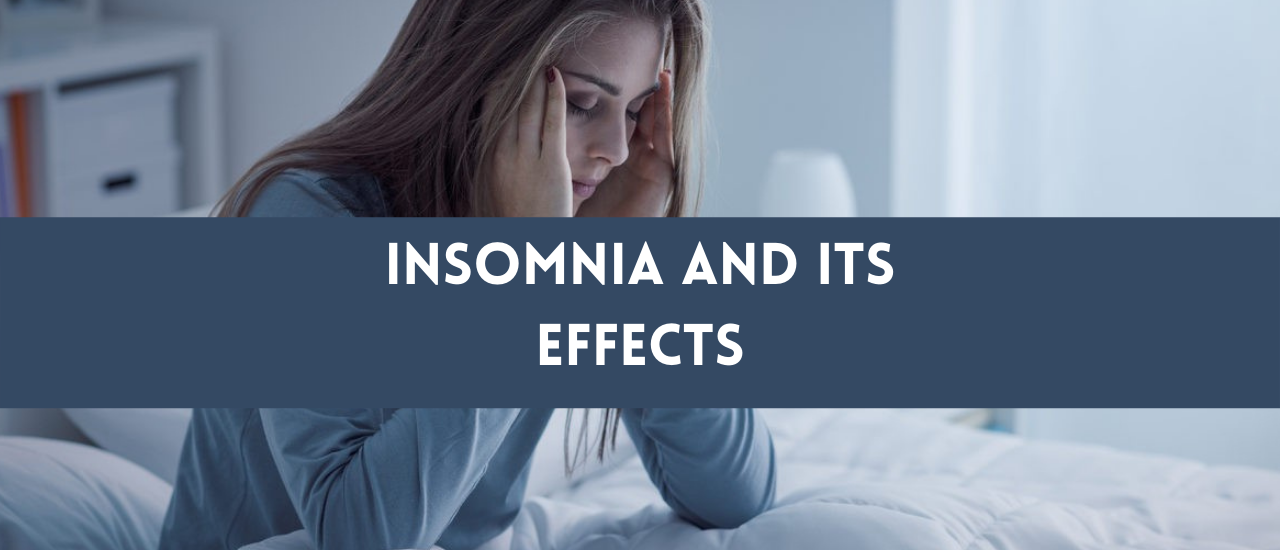

wordpress-seo domain was triggered too early. This is usually an indicator for some code in the plugin or theme running too early. Translations should be loaded at the init action or later. Please see Debugging in WordPress for more information. (This message was added in version 6.7.0.) in /home/sehatnagar.com/public_html/wp-includes/functions.php on line 6114
Insomnia is a sleep disorder in which you have trouble falling and/or staying asleep. The condition can be short-term (acute) or can last a long time (chronic). We should know what causes insomnia and it’s its effects on mental and physical health.

In contrast to the association of insomnia with mental health, its association with physical health has remained largely ignored. Based on findings that insomnia with objective short sleep duration is associated with activation of both limbs. Other indices of physiological hyper arousal, should affect adversely physical and mental health.
There are two types of insomnia: primary and secondary.
Patients with insomnia typically complain of difficulty concentrating, memory problems, and difficulty focusing attention. We should know the causes of Insomnia to avoid them. Insomnia can increase your risk for mental health problems as well as overall health concerns.
Mental health conditions like anxiety, depression, and bipolar disorder give rise to serious sleeping problems. These conditions can increase negative thoughts and mental hyperarousal that disturbs sleep. In addition, insomnia can increase mood and anxiety disorders. It makes symptoms worse and even increases the risk of suicide in people with depression.
Almost any condition that causes pain can disrupt sleep by making it harder to lie comfortably in bed hence causes of insomnia also includes physical illness. Dwelling on pain when sleepless in bed may amplify it, increasing stress and sleeping problems.
Poor sleep habits include an irregular bedtime schedule, naps, stimulating activities before bed, an uncomfortable sleep environment, and using your bed for work, eating, or watching TV. Screen time just before bed can interfere with your sleep cycle. Sometimes, people with insomnia experience microsleep, which is when they fall asleep for a short time.
Having a light snack before bedtime is fine, but eating too much may cause you to feel physically uncomfortable while lying down. Many people also experience heartburn, a backflow of acid and food from the stomach into the esophagus after eating, which may keep you awake.
Many people with an anxiety disorder have trouble with their thoughts and worries keeping them up at night. When they sleep, they often wake up and the anxiety keeps them from being able to fall back asleep. Unfortunately, not only can anxiety cause insomnia, but insomnia can also cause anxiety. This makes it important to find the root cause of what’s going on so the cycle can be stopped.
Your circadian rhythms act as an internal clock, guiding such things as your sleep-wake cycle, metabolism, and body temperature. Disrupting your body’s circadian rhythms can lead to insomnia. Causes include jet lag from traveling across multiple time zones, working a late or early shift, or frequently changing shifts.
Caffeine is a stimulant that can stay in your system for hours, making it harder to get to sleep. It potentially contributes to insomnia when used in the afternoon and evening. Alcohol which is a sedative that can make you feel sleepy can worsen your sleep by disturbing your sleep cycle.

This is a side effect that I experienced personally on a daily basis back when I had sleep issues. Research shows that insomnia can cause headaches, and it’s fairly common. That might prompt someone to take Tylenol that may make insomnia worse.
Someone with insomnia is more stressed than someone who sleeps well. When someone is stressed, they make worse decisions. Many people stress eat junk food, or seek some other form of instant relief instead of doing something “hard” like exercising.
Research has shown that sufficient sleep is needed to consolidate declarative memory. In other words, sleep helps you remember things clearly.
When you have chronic insomnia, you’re constantly depressed and often have headaches. Even if you’re usually an emotionally stable person, this is going to affect your mood.
All of those side effects above start showing up in the short term, but some of them can lead to long-term negative consequences as well. There’s a clear association between insomnia and heart problems, diabetes, cardiovascular disease, and ischemic stroke.